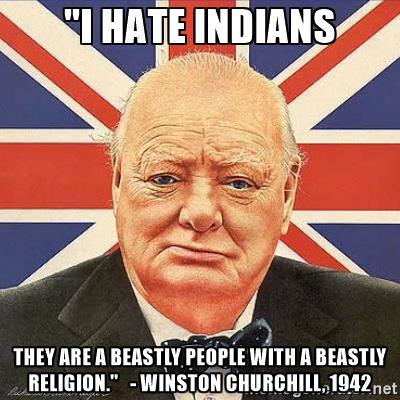
 Is it because India has not yet learned how to fight this new kind of covert war that evil men like Hafiz Saeed and Masood Azhar are still able to do what Jaish-e-Mohammad did last week in Pulwama? – Tavleen Singh
Is it because India has not yet learned how to fight this new kind of covert war that evil men like Hafiz Saeed and Masood Azhar are still able to do what Jaish-e-Mohammad did last week in Pulwama? – Tavleen Singh
A question that has troubled me ever since Maulana Masood Azhar became one of the jihadist fiends we released in Kandahar 20 years ago is why he is still alive. Why was he along with the other monsters released in exchange for the passengers of IC 814 not killed immediately after they sped across the border into Pakistan? The military men who rule the Islamic Republic have never hesitated to admit that the jihadi groups they created were ‘assets’ in their unending war against India, so they would have no right to complain if we started destroying these assets by covert means. So why have we never done this? Could it be because we do not have the ability to do this? If not, why not?
When Narendra Modi became prime minister, he promised not to be as much of a wimp as the prime ministers before him. He used strong language to condemn their wimpy behaviour. After the attack on the military camp in Uri three years ago, there was that famous surgical strike. It was a tough immediate response. But, surely since then, there should have been time to build enough covert assets to conduct exactly the sort of war inside Pakistan that the Islamic Republic’s military rulers have been conducting on Indian soil for far too long? It is because India has not yet learned to fight this new kind of war that evil men like Hafiz Saeed and Masood Azhar are still able to do what Jaish-e-Mohammad did last week in Pulwama.
These Pakistani ‘assets’ are religious fanatics who have a hatred for India that is visceral. In a memoir Masood Azhar wrote soon after being freed, he wrote of how the Indian Minister of External Affairs, Jaswant Singh, had offered him food and water on the flight that took him to Kandahar and how he had refused. “I did not want to sip even a drop of Indian water,” he wrote. He drank plenty of it when he spent years in Indian jails and to this day it makes no sense why nobody quietly poisoned that water while he was a guest of the Government of India. The other man who we should have been dealt with similarly was Omar Sheikh who was released in the same exchange. He also spent years in Indian jails.
If we can have special courts to try rapists, why do we not have special military courts to try jihadists? In ‘secular’ Congress times, this was not a question anyone could have asked without being labelled a hawk because senior Congress leaders were not even prepared to accept that the 26/11 attack was a Pakistani military operation. A former chief minister released a book whose title said that the RSS was behind the attack on Mumbai. And, the man who is now Congress president told an American ambassador he was more worried about Hindu terrorism than the jihadist kind.
So we learned to live with what we continue to wrongly call ‘Pakistani terrorism’.
It is not. It is war. When the surgical strike in 2016 was Modi’s response to the Uri attack, there was hope that Modi understood the need to fight back hard. Surgical strikes have their place but why are we not using the same tactics that the Pakistani army is using against India? If it is because we have not created the assets to do this, then shame on us. We need these assets more than we need Rafale fighter jets because there is unlikely to be another old-style war on our benighted subcontinent. There will not be that kind of war because the Pakistani military has proven that it is unnecessary when they can continue to deploy ‘assets’ like Masood Azhar.
So what happens now? With India on the verge of a general election, there is little time to do more than spout the kind of platitudes we heard from senior political leaders after the Pulwama attack. ‘The sacrifices of our brave security personnel shall not go in vain,’ tweeted the Prime Minister and the Home Minister echoed this sentiment. The Governor of Jammu & Kashmir accepted that there had been a major intelligence failure.
But is there nothing more we can do? Since we are in a state of undeclared war with Pakistan, surely we can, at the very least, break diplomatic relations. Is there any point in having an embassy in Islamabad when Pakistan has made it so clear that it has no intention of calling off its cowardly, shameful war?
What must be done even more urgently is to prepare our soldiers and para-military forces to fight the kind of war that is being fought against us. Attacks like the one that killed 40 CRPF men last week are not acts of terrorism; they are acts of war. – The Indian Express, 17 February 2019
» Tavleen Singh is an author, columnist, and political commentator in New Delhi.\
Filed under: india, pakistan | Tagged: jaish-e-mohammed, masood azhar, pakistani aggression, war |




























River waters can be cut off too.
Why do we give water to a country that seeks our annihilation?
LikeLiked by 1 person
That India has limited options against Pakistan is hogwash. Here’s how India can make Pakistan bleed for Pulwama – Dailybite – Daily-O – 15 February 2019
Beyond the debates over the hawks versus doves approach lies a whole world of unexplored realpolitik.
In that world, where current realities challenge the ideal — only a wishful world of peace — India is at war with Pakistan.
You can also say that Pakistan is waging a war against India. But the operational reality is that a war is on.
It is the ceasefire in this ongoing war which Islamabad is using against New Delhi to score strategic points, making India bleed through one cut, one soldier at a time. Or, as is the case with Pulwama, over 40 cuts in one go.
Many in India are saying that the country doesn’t have too many options at its disposal to teach Pakistan a lesson, despite the grave provocation from across the border.
Don’t believe them.
India has many options to make Pakistan pay for every drop of blood that our soldiers have lost in Pulwama and to hold the Pakistani establishment accountable for every tear the families of those martyrs have shed.
1) Breaking off talks
Intellectuals tell us that dialogue is the only option for the resolution of any dispute. They are right — and wrong.
Dialogue works when both parties want the dialogue to work.
If either of the parties decides that it will continue to strike and negotiate at the same time, the process is set to fail.
Such a dialogue is a waste of time.
For India to hope that it can stop terror outfits such as the Jaish-e-Mohammed (JeM) from attacking its soil by holding talks with Pakistan’s Prime Minister Imran Khan, whose own political future depends on terror handlers in his country, is dangerously naive.
Dialogue creates a facade that relations are improving, while all that Pakistan is known to be doing during the most hyped dialogues between the two countries is planning attacks on India.
Kargil happened when former Indian PM Atal Bihari Vajpayee travelled on a bus to Pakistan. Pathankot happened after incumbent PM Narendra Modi landed in Pakistan to wish Nawaz Sharif on his birthday.
The rest is history.
The war, meanwhile, is on.
2) Cutting off trade ties
On November 2, 2011, the Pakistani cabinet formally accorded to India the ‘Most Favoured Nation’ (MFN) status. But that decision remains unimplemented.
India had granted this status to Pakistan way back in 1996.
In a move that has come rather late, India withdrew the MFN status granted to Pakistan, which allowed Islamabad to enjoy the benefits of lower tariffs on its exports to India, on February 15. The demand to withdraw the status has been made every time Pakistan attacked Indian soil — and there have been several instances of that.
Both countries have a preferential trading arrangement under the South Asia Free Trade Area (Safta) process. However, Pakistan has blocked some of these benefits to India through the negative list.
It is time India cuts off all trade ties with a nation that uses all the money to fund terror against India. India is a fast growing economy with a huge domestic market. The decision to not do trade with Pakistan is unlikely to make any difference to India — but is sure to send a message to Pakistan.
3) Ending diplomatic relations
It is not only bilateral relations that India needs to take care of. New Delhi needs to use its diplomatic offices to ensure no country does business with Pakistan. The message has to go out loud and clear — either you are against Pakistan or you are against us.
China must not be an exception.
China has been shielding Maulana Masood Azhar and his terror outfit, JeM, by blocking New Delhi’s appeal to list the UN-proscribed Pakistan-based terror group’s chief as a global terrorist. Beijing needs to be told unequivocally it can’t be business as usual anymore.
All this “Made in China” business must stop if the dragon nation continues to invest in Pakistan — and back it in terror activities.
We have a lesson to learn from the Americans here. When they impose sanctions against a nation, they ensure its isolation is complete.
It is time India uses its position as a huge market that the world is vying for by imposing a precondition that the global community can establish ties with India only after severing all ties with Pakistan.
That India hasn’t already used this bargaining chip with the world is baffling.
The country has remained a pacifist nation by denying the reality that Pakistan has declared open war against India.
What Pakistan sells to the world as its ‘non-state actors’ are actually the hoods running the show in the country. Puppet Prime Ministers such as Imran Khan are a facade created to ensure it can go on its borrowing spree across the world, to fund the terror modules that aim for nothing short of India’s total destruction.
Because that is what a war is about — finishing your enemy.
It’s timeout for niceties.
It’s time to bleed back Pakistan.
LikeLiked by 1 person